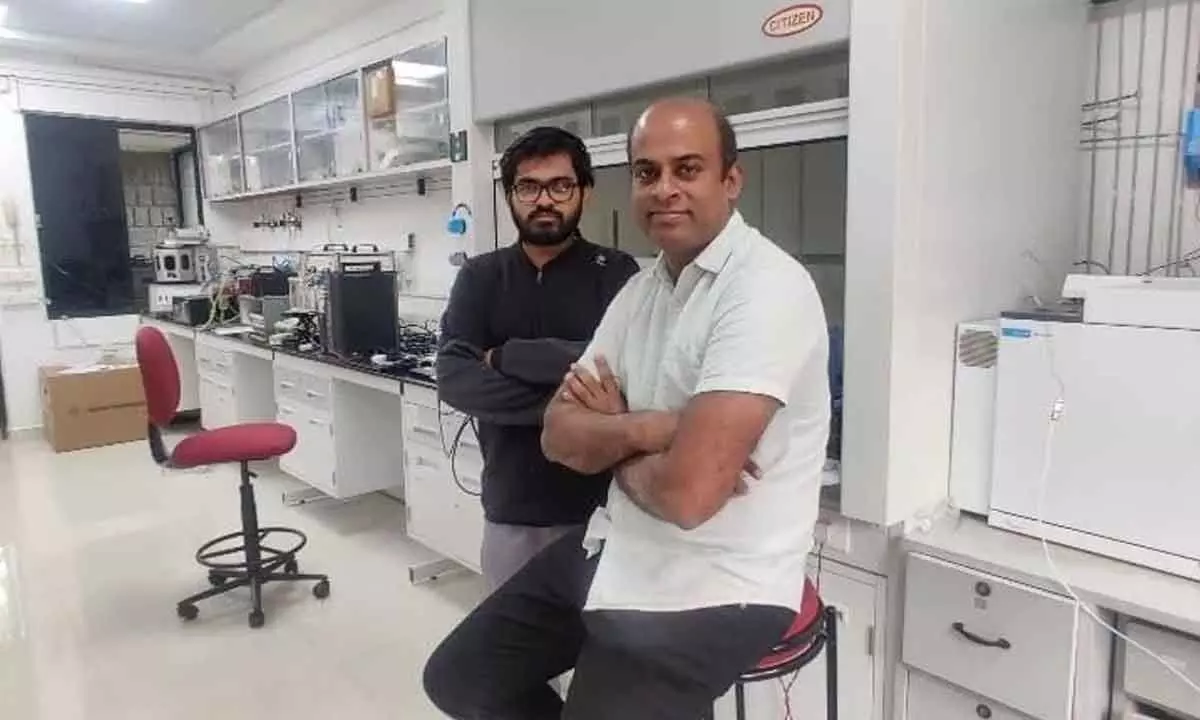Indian researchers develop new method to harness, convert CO2 to ethylene

New Delhi: A team of Indian researchers has synthesised a novel and highly efficient photocatalyst that can convert carbon dioxide (CO2) to high-value products ethene and ethylene - used as fuel gases and also for the polymer industry.
The innovation will help India stride towards clean fuel, and bolster its goal for net-zero emissions by 2070.
The team at the Jawaharlal Nehru Centre for Advanced Scientific Research (JNCASR), Bengaluru (an autonomous institution under the Department of Science & Technology), developed the photocatalyst with an unprecedented selectivity of 99 per cent toward C2H4 (ethylene) - a typically high-value product obtained from CO2.
To achieve a sustainable future, harnessing solar energy for fuel production is crucial, and efficient photocatalysts are key in the conversion of solar energy to fuel.
Materials for photocatalytic CO2 reduction reactions are still in the early stages of development.
The new composite catalyst demonstrates the highest formation rate in the field of photocatalysis, wrote the team in the paper published in the Journal of the American Chemical Society (JACS) and Angewandte Chemie International Edition.
The research led by Professor Sebastian C. Peter, a material scientist at JNCASR, introduces a template-free and cost-effective strategy, which is practical as well as a potentially scalable approach for large-scale applications.
“The catalysts we have developed have not merely remained confined to the laboratory.
In fact, we have successfully scaled up our innovations, with a dedicated building within the other JNCASR campus serving as the epicentre for large-scale demonstrations. These demonstrations have garnered attention from national and international agencies, including our participation in the prestigious NRG COSIA Carbon XPRIZE, where our technology received ISO certification,” said Prof Peter in a statement.















